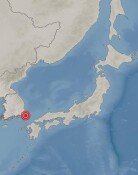[Opinion] Patriarchy and Matriarchy
An advertising company recently held a survey on a sample of 1,200 males and females between the age of 45 and 64 across the nation, and dubbed them the WINE (Well Integrated New Elder) generation. The name signifies that they are a generation that matures over time like wine. A unique characteristic of this generation is that the power within households is shifting from the patriarch to the matriarch. The actual decision-making and the control over consumption is swiftly being handed to females from males. In line with such tendencies, much influence in Korean politics, with the general elections approaching, is being handed to the women.
The conflict between MDP leader Chough Soon-hyung and lawmaker Chu Mi-ae symbolizes the confrontation between patriarch and matriarch in Korean politics. Regarding the continued demands for a party reform from relatively young party members including Chu, Chough commented, I will turn 70 next year. This is as if children all grown up are complaining that their old father is not making enough money as he goes searching for work to help the difficult family situation. Chu countered, The leader displays paternalism to one side, but extreme patriarchy to the other that calls for reform.
Due to the impeachment backlash, Chough is like a captain of a wrecked ship, a patriarch struggling to help the family in its time of need, but with considerably less say in matters. Meanwhile, Chu reminds us of a matriarch gaining actual power within the household, as she has her say and repeatedly makes her assertions. Sohn Bong-scuk of the Central Election Management Committee is said to have asked Chu to be the MDPs mother as she urged Chu to accept the leadership of the election polling committee. However, it seems that Chu is determined to arrange for a new household altogether.
As parents fight over power, it is the children who suffer. When Chough announced he would run in the elections in Daegu to overcome regional conflicts, it was Chu who burst into tears wailing, How can we send our leader to Daegu? The fact of the matter is that Chough is more a paternal figure than a patriarchal one. It would be best if the two could work together like ripe wine and oak barrels to produce high-quality wine. Whether patriarch or matriarch, we should heed our ancestors wisdom that the head of the household must strive to stand tall for the family even if he or she has to lean on the wall.
Editorial Writer Oh Myung-chul oscar@donga.com







